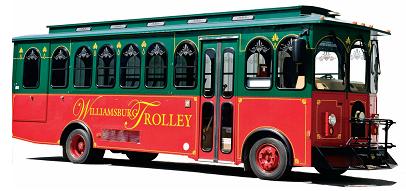The Williamsburg Area Transit Authority, which includes the buses and trolleys that roll through the College of William and Mary campus, will receive additional funding from this year’s state transportation package.
With tax revenue, the transportation plan will allocate funds for operational services.
Jodi Miller, a Williamsburg representative on the WATA board, said there are four possible services that could stem from the estimated $640,000 transit funding: removal of the afternoon service break and implementation of new drivers; preservation of the Williamsburg Trolley service; increase in frequency of service of determined routes; or an extension of service to the James City Government Center, Riverside Doctors’ Hospital development, Lackey Free Clinic and York and Jamestown areas.
Kevin Danker, executive director of WATA, looks forward to opportunities for implementing new services. Because the allocated funds are operational, and not capital, he said options may be limited.
“One of the challenges is, without being able to buy new buses, we don’t have additional buses to begin some of these new services,” Danker said. “It’s unfortunate that we didn’t receive capital money at the same time.”
Danker said there is a possibility that WATA will receive capital funding next year, which could allow for a wider range of service enhancements like purchasing more buses.
“We’re happy that this new operating money is coming on board, and we’re looking forward to additional capital money next year,” Danker said.
Danker also noted that the transit authority plans to use the funds to improve customer service, in part focused on students of the College.
Student transportation services were recently expanded, incorporating trolley stops within central campus. Recent proposals include not only a continuation of the trolley system, but further development of services which will provide quicker and more efficient transit access to students.
An advocate for the maintenance of transportation systems within and around Williamsburg, City Council member Judith Knudson also expressed support for the operational funding.
“What the funding does is keep [the transit system] going,” Knudson said. “We need to keep it going long enough to make it become the thing to do. Instead of hopping in your car, you hop on the bus.”
Although only operational services may be tweaked and improved this year, students look forward to the prospect of new transportation vehicles.
“[I would like] more buses to run more often, if that’s possible,” Greg Packer ’16 said.

